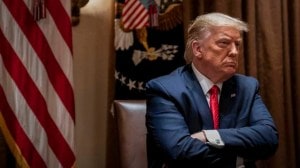Chidambaram hails new Exim policy
NEW DELHI, APRIL 1: Former finance minister P Chidambaram said here on Saturday that though the Exim policy announcement for setting up sp...

NEW DELHI, APRIL 1: Former finance minister P Chidambaram said here on Saturday that though the Exim policy announcement for setting up special economic zones (SEZs) was a welcome initiative, it would not be easy to implement the decision.
Inaugurating a workshop on EXIM policy here, organised by the centre of tax communication and studies (CTCS), Chidambaram said that the government had to do the homework as to what will be the tax and forex regime under the SEZs. He said that these zones should be special economic zones in real sense.
Congratulating the government for keeping the policy book to 60 pages, Chidambaram said that fortunately, everyone had accepted more free trade, more liberalisation, less regulation and eventually an almost free export-import regime. "The commerce ministry is doing a commendable job by trying to simplify the policy," he said.
Chidambaram said that twelve hours was a short time to assimilate the contents of the new policy and he would not attempt to make an exhaustive analysis.
The former finance minister said that quantitative restrictions (QR) regime had to be dismantled under the WTO Agreement and the commerce ministry had done the right job by removing 714 items from the list.
On the changes in Export Promotion of Capital Goods (EPCG) scheme, Chidambaram said that it would be difficult to monitor the fulfilment of export obligation and the administrative cost for the same would be very high. He said that possible solution to the problem might be scrapping of the export obligation for small importers.
Commenting on the modifications in Duty Entitlement Pass Book (DEPB) scheme, he said, "I don’t understand why the government has done away with the pre-export DEPB and retained the post-export DEPB. It should have been scrapped completely. There is no logic in maintaining a post-export DEPB with a pre-determined price." However, there was a neat arrangement of removing the threshold limit, he said.
Chidambaram welcomed the special incentives for biotech, granites and several other items and said that these sectors deserved an incentive. Addressing the workshop, director general of foreign trade (DGFT), NL Lakhanpal said that the EXIM policy basically aimed at aligning the country’s trade policies with international practices.
He said that provision for electronic filing of applications was a major step forward in this direction and it will give tremendous boost to e-commerce in the country.
Lakhanpal said that promotion of exports was not the preserve of central government only, state governments too needed to play their role.
The DGFT added that the government policies had now shifted almost entirely to the trust-based system. "Our experience is when you trust people, they live upto your expectations," said Lakhanpal.






- 01
- 02
- 03
- 04
- 05

























